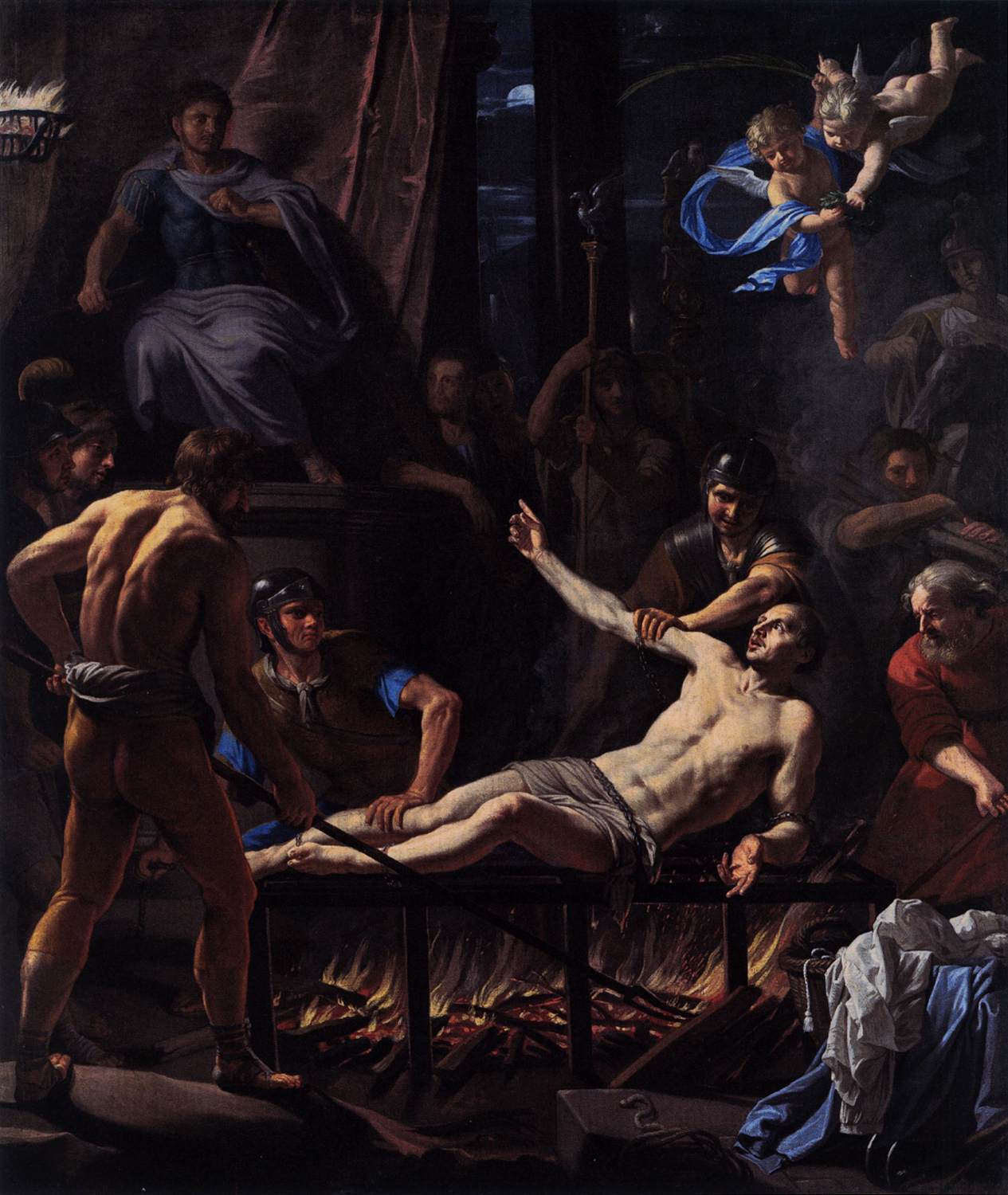Description
The painting The Martyrdom of St Lawrence by Jean-Baptiste De Champaigne is a work that stands out for its baroque style and its dramatic composition. The French artist manages to capture in great detail the scene of the martyrdom of the saint, who was burned alive on a grill by order of the Roman Emperor Valerian.
The work presents a composition that focuses on the main figure of the saint, who is in the center of the scene surrounded by the executioners and the spectators. The grill where he will be martyred is the main object of the work, since it is there where the action is concentrated.
The use of color is another interesting aspect of the work. De Champaigne uses a palette of dark, earthy tones, creating a somber and dramatic atmosphere. The saint is represented in a white robe, which makes him stand out in the midst of the chaos that surrounds him.
The history of the painting is also fascinating. The work was commissioned by Queen Christina of Sweden, who was a great admirer of Baroque art. The painting was made in 1640 and is currently in the Louvre Museum in Paris.
A little-known aspect of the work is that De Champaigne used his own face as the model for the executioner holding the grill. This demonstrates the level of detail and realism that the artist wanted to capture in his work.
In summary, The Martyrdom of St Lawrence by Jean-Baptiste De Champaigne is a work that stands out for its baroque style, its dramatic composition, the use of color and the story behind its creation. It is a work that continues to impress the public with its representation of the saint's martyrdom and its somber and emotional atmosphere.

